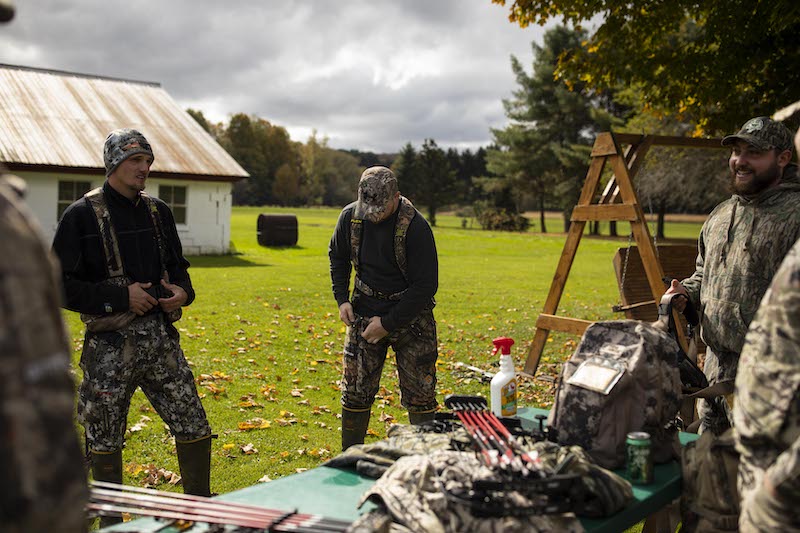Most urban bowhunting takes place on small properties, which creates unique hunts and special challenges. One such challenge is what you should do if a deer you arrow leaves the property before dying. That can cause extreme stress, but Taylor Chamberlin, an experienced urban bowhunter, offers sound advice for such situations.
Chamberlin is a skilled archer and shoots tiny groups at 40 yards. But he self-imposes a 20-yard maximum shooting distance when bowhunting deer, and carefully places his shots when hunting in suburbs. He wants his broadhead to hit both lungs, which causes the shortest blood trails.
“I want a deer that’s slightly quartering away, has its near side leg forward, and is calmly feeding about 14 yards away,” Chamberlin said. “I always aim for the exit. Aiming for the exit is the best way to put your pin in the right spot. I want that arrow to exit right at the shoulder pocket.”
Waiting for that perfect shot at deer within 20 yards takes patience, but it also means watching many deer walk away. The reward is short blood trails and stress-free recoveries.
Even though a landowner’s neighbors might not let you hunt their property, it’s important they know where you’re hunting. They should also know that you might have to recover an animal on their property. Discuss that possibility upfront before you start hunting. It makes recovering a deer much less eventful.

Wear street clothes under your camo or have a set accessible to change into. Photo Credit: ATA
Imagine someone wearing camouflage knocking on your door late at night. It can put people on guard and make them less receptive to hearing you out. That’s why Chamberlin recommends bringing a change of street clothes, or wearing them under your camo. You can throw them on if you need to talk to a neighbor.
When it’s time to talk to a homeowner about recovering a deer, be upfront and honest, and address their fears. After knocking or ringing their doorbell, step back to create space, which is less threatening than standing in their doorway. Remind them that you’re hunting a neighbor’s property with permission, and you’ve shot a deer that’s now on their property.
Most people don’t want a deer carcass on their property, so getting permission to recover it usually isn’t hard. However, these interactions can affect how the public perceives bowhunters. Respect homeowners and their property, and remember that your actions represent all bowhunters. To keep the experience positive for the homeowner, clean up any blood on their lawn and don’t field dress the deer on their property.
For more urban bowhunting information, check out Part 1 of our urban bowhunting series.